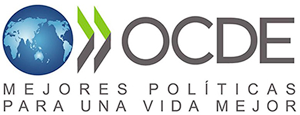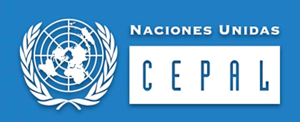MULTILATERAL

United Nations Office for South-South Cooperation (UNOSSC)
The United Nations Office for South-South Cooperation (UNOSSC) is a knowledge hub providing advisory and consultancy services to all those interested in South-South and triangular cooperation. It enables developing countries to effectively address their development challenges and to seize opportunities to solve them.
›› South-South Galaxy
UNOSSC, together with its development partners, has created a global knowledge-sharing and partnership-building platform: South-South Galaxy. The platform, based on artificial intelligence, aims to respond systematically and effectively to developing countries' demand for linkages, learning and collaboration with potential partners. South-South Galaxy serves as a consolidated South-South solutions platform for these partners in the UN system and acts as a one-stop shop for all to use. Rather than replacing or duplicating, the platform seeks to complement existing national or regional institutional arrangements.
INTERNATIONAL

Organisation for Economic Co-operation and Development (OECD)
The Organisation for Economic Co-operation and Development (OECD) is an international organisation whose mission is to design better policies for better lives. It aims to promote policies that foster prosperity, equality, opportunity and well-being for all people. They are backed by 60 years of experience and expertise to better prepare tomorrow's world.
›› Development Assistance Committee (DAC)
It promotes coordinated and innovative international action to accelerate progress towards the Sustainable Development Goals (SDGs) in developing countries and improve their financing. In support of the OECD's Development Assistance Committee (DAC), it helps set international principles and standards for development co-operation and we monitor the implementation of donor commitments. Drawing on the full range of OECD expertise, it supports members and partners through its data, analysis and guidance.
›› About Triangular Cooperation
Triangular Cooperation helps to achieve the SDGs in an innovative and collaborative way and can provide solutions to address today's most pressing environmental, economic and social challenges, ensuring sustainable development in partner countries. The OECD considers the combination of three roles, which may rotate throughout the implementation of the initiative, to be the common denominator of triangular initiatives..
›› Repository og Triangular Cooperation Projects
This database contains information on triangular co-operation projects that countries, international organisations, representatives of the private sector, civil society, the philanthropic sector and sub-national actors have shared with the OECD. The database is progressively expanding as triangular cooperation actors report their activities to OECD.
›› Development Centre
It helps developing countries and emerging economies find innovative solutions to promote sustainable growth, reduce poverty and inequality and improve people's lives. It facilitates a policy dialogue between governments, involving public, private and philanthropic actors. African, Asian and Latin American countries participate as full members in the Centre, where they interact at the same level as OECD members.

Global Partnership Initiative on Effective Triangular Co-operation
The GPI is a global initiative that promotes a dynamic, innovative and contemporary definition of triangular cooperation. The GPI was created in 2016 to provide a platform for the exchange of experiences, challenges and tools to work more effectively in triangular cooperation.
REGIONAL

Economic Commission for Latin America and the Caribbean
ECLAC is one of the five regional commissions of the United Nations and is based in Santiago, Chile. It was founded to contribute to the economic development of Latin America, to coordinate actions aimed at its promotion and to strengthen the economic relations of the countries among themselves and with the other nations of the world. Subsequently, its work was extended to the Caribbean countries and the objective of promoting social development was incorporated.

Iberoamerican Secretariat (SEGIB)
The international support organisation for the 22 countries that make up the Ibero-American community: the 19 Spanish and Portuguese-speaking countries of Latin America, and the Iberian Peninsula countries of Spain, Portugal and Andorra.
We support the organisation of the Ibero-American Summits of Heads of State and Government, fulfil their mandates, and promote Ibero-American cooperation in the fields of education, social cohesion and culture.
››Iberoamerican Cooperation
Ibero-American Cooperation is the channel through which the agreements and political commitments made by the Ibero-American Heads of State and Government at the Summits are translated into concrete actions. It is a unique model of cooperation thanks to its multi-dimensional and multi-actor regional approach and a flexible and horizontal design in which participation is voluntary and countries participate according to their national priorities in the context of the 2030 Agenda for Sustainable Development. Furthermore, it is based on solidarity, which strengthens the community formed by the 22 countries and through joint actions contributes to the socio-economic and sustainable development of the region.
›› About Triangular Cooperation
The Ibero-American General Secretariat (SEGIB) has been working for more than a decade to strengthen South-South and triangular cooperation and enhance its value in three interrelated areas: the systematisation of information and generation of knowledge; the generation of capacities for action in cooperation for sustainable development; and the international positioning of this cooperation modality.
››Integrated Iberoamerican Data System on South-South and Triangular Cooperation (SIDICSS)
Ibero-American South-South and Triangular Cooperation Data Platform.

Ibero-American Programme for the Strengthening of South-South Cooperation (PIFCSS)
The Ibero-American Programme for the Strengthening of South-South Cooperation (PIFCSS) is an intergovernmental initiative aimed at strengthening South-South Cooperation (SSC) and Triangular Cooperation (TC) in Ibero-America, promoting its values and principles, in line with the fulfilment of the Sustainable Development Goals. It represents a model of horizontal cooperation that brings together countries with different backgrounds, sharing their experiences on an equal footing and participating according to their capacities in the search for consensus.
OTHERS
European Union-Latin America and the Caribbean Foundation (EU-LAC Foundation)
The EU-LAC Foundation was established by the Heads of State and Government of the European Union (EU) and the Community of Latin American and Caribbean States (CELAC) in 2010. Its members are the EU and CELAC countries and the EU itself. The Foundation is a tool of the EU-CELAC partnership and its activities nurture intergovernmental dialogue, in line with the bi-regional Action Plan. The Foundation's mission is to strengthen and promote the bi-regional strategic partnership, enhancing its visibility and encouraging the active participation of the respective civil societies.
Euroamerica Foundation
The Euroamerica Foundation is a plural, independent and non-profit organisation whose main objective is to stimulate cooperation and understanding between European and Latin American institutions, companies and personalities, in order to promote relations between Europe and America, especially from the private sector.
Fundación Carolina
The Fundación Carolina (FC) was created by agreement of the Council of Ministers on 22 September 2000, with the aim of promoting cultural relations and cooperation in educational and scientific matters between Spain and the countries of the Ibero-American Community of Nations and others with special historical, cultural and geographical links.
International Italo-Latin American Organisation (IILA)
IILA, the International Italo-Latin American Organisation, is an intergovernmental organisation based in Rome. It was created in 1966 as the Italian-Latin American Institute by Foreign Minister Amintore Fanfani, who conceived IILA as a tool to promote and enhance relations between Italy and Latin America. The Member States that make up this Organisation are Italy and the 20 Latin American Republics (Argentina, Plurinational State of Bolivia, Brazil, Chile, Colombia, Costa Rica, Cuba, Dominican Republic, Ecuador, El Salvador, Guatemala, Haiti, Honduras, Mexico, Nicaragua, Panama, Paraguay, Peru, Uruguay and the Bolivarian Republic of Venezuela).







